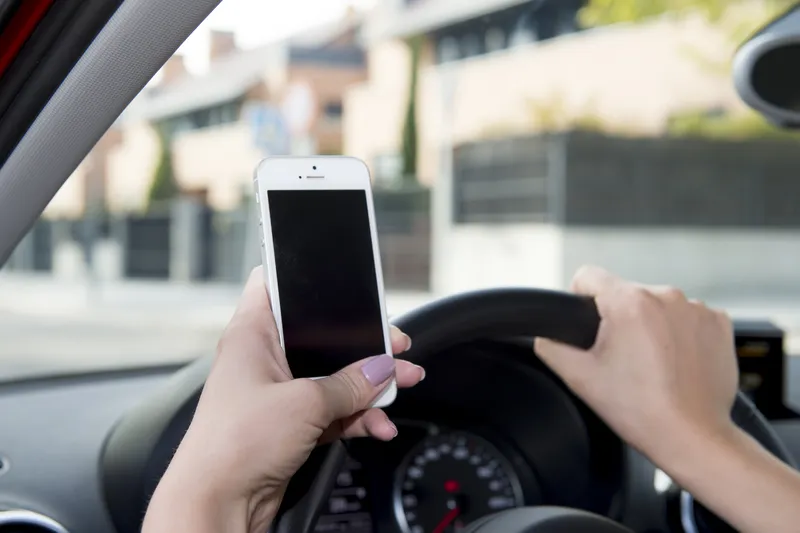At present, the law prevents drivers from using a hand-held mobile phone to call or text. However, people caught filming or taking photos while driving have escaped punishment. Lawyers have successfully argued this activity does not fit into the ‘interactive communication’ currently outlawed by the legislation.
The revised legislation will mean any driver caught texting, taking photos, browsing the internet or scrolling through a playlist while behind the wheel will be prosecuted for using a hand-held mobile phone while driving.
It is already a criminal offence to use a phone while driving without a hands-free device. This latest move will see government go further to ensure the law reflects the use of devices which allow other distracting activities.
The impacts of this behaviour are proven – if a driver looks at their phone for just two seconds when travelling at 50km/h, whether to reply to a message or send a quick snap, they will travel 30.5m blind, drastically increasing the chance of crashes.
The review will be urgently taken forward with further proposals expected to be in place by next Spring - making the offence clearer for drivers and police forces.
Nick Lloyd, Head of Road Safety at the Royal Society for the Prevention of Accidents said: “Drivers who use their phones are up to four times more likely to crash, RoSPA highlighted this loop hole in the summer and is delighted that such prompt action is being taken to ensure that all hand-held mobile phone use is to be prohibited, making our roads safer for all.”
This action comes alongside further measures to tackle phone use while driving, including a review of road traffic policing and wider traffic enforcement to look at how roads policing currently works, its effectiveness, and where improvements could be made.
While Ministers have also announced that they will consider the current penalties in place for hand-held mobile phone use, there are no plans to ban hands-free phone use. Anthony Bangham, National Police Chiefs Council Lead for Roads Policing, Chief Constable said: “I welcome the Government’s announcement to review the law in this area. Technology has moved on since the original offence was introduced and it’s important to ensure any distraction to a driver is kept to an absolute minimum to keep all road users as safe as possible.”
The Government also targets distracted drivers by challenging the attitudes, behaviours and social factors that lead to accidents in its award-winning THINK! campaigns.
These are the latest steps taken by the Government to improve road safety following the launch of the Road Safety Action Plan earlier this year, which set out over 70 measures to reduce the number of people killed and injured on roads around the country.
Phone safety move addressed
The UK Government is closing a legal loophole that has allowed drivers to escape prosecution for hand-held mobile phone use while behind the wheel.
At present, the law prevents drivers from using a hand-held mobile phone to call or text. However, people caught filming or taking photos while driving have escaped punishment. Lawyers have successfully argued this activity does not fit into the ‘interactive communication’ currently outlawed by the legislation.
The revised legislation will mean any drive
October 31, 2019
Read time: 3 mins
The UK Government is closing a legal loophole that has allowed drivers to escape prosecution for hand-held mobile phone use while behind the wheel.






